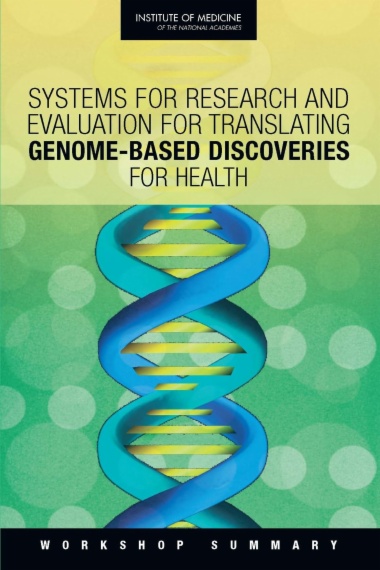

With the advent of genome-wide association studies, numerous associations between specific gene loci and complex diseases have been identified—for breast cancer, coronary artery disease, and asthma, for example. This rapidly advancing field of genomics has stirred great interest in "personalized" health care from both the public and private sectors. The hope is that using genomic information in clinical care will lead to reduced health care costs and improved health outcomes as therapies are tailored to the genetic susceptibilities of patients.
A variety of genetically based health care innovations have already reached the marketplace, but information about the clinical use of these treatments and diagnostics is limited. Currently data do not provide information about how a genomic test impacts clinical care and patient health outcomes—other approaches are needed to garner such information.
This volume summarizes a workshop to address central questions related to the development of systems to evaluate clinical use of health care innovations that stem from genome-based research:
What are the practical realities of creating such systems?
What different models could be used?
What are the strengths and weaknesses of each model?
How effectively can such systems address questions about health outcomes?